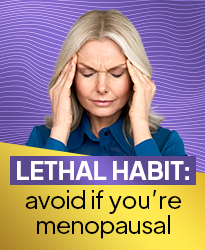Picture this: you’re sitting in traffic, frustrated and borderline homicidal, when suddenly your favorite song comes on the radio. Maybe it’s a guilty-pleasure pop anthem, or maybe you’re more of a classical symphony aficionado. Either way, as soon as that first note hits, your mood does a complete 180. Your foot starts tapping, your head starts bopping, and suddenly the existential dread brought on by rush-hour traffic evaporates like steam from a hot cup of tea.
What just happened? Well, my friend, you just got a little taste of music therapy—and you didn’t even have to shell out big bucks for a therapist in a cozy office with a Himalayan salt lamp!
Music therapy isn’t just about feeling good for a few minutes, though. It’s a legitimate, evidence-based practice that’s making waves in the world of health and wellness. And it turns out that the health benefits of tuning into the right tunes run deeper than you might think. So, buckle up, because we’re about to explore how music therapy can boost your health, manage your stress, and maybe even turn you into the healthiest air guitar player in town.
What Exactly is Music Therapy? And Can We All Get a Degree in It?
Before we dive into the magical benefits, let’s define what music therapy is—because it’s more than just a playlist of bangers to keep you motivated at the gym (although, honestly, that might not be a bad side hustle). Music therapy is an evidence-based therapeutic approach that uses music as a tool to address various physical, emotional, cognitive, and social needs.
Think of music therapists as the cool kids in the therapy world. They might help you regain motor skills after a stroke, guide you through trauma recovery, or even assist you in managing chronic pain—all through the healing power of music. It’s science meets sound in the grooviest possible way.
Music therapists are trained professionals, with degrees that involve intense study in both psychology and music (and probably an elective in how to be the person with the best playlist at every party). Their job is to assess the needs of clients and create custom music-based interventions, ranging from singing to playing instruments to simply listening.
But you don’t have to have a PhD in “Jamology” to understand how music can improve your health—let’s break it down.
Join Our Mailing List
Register now to get our hints and tips newsletter directly to your inbox
The Mind-Music Connection: Tunes and Your Brain
Your brain on music is a lot like a dance party—neurons are firing off signals like flashing strobe lights, releasing feel-good chemicals like dopamine, and activating the brain regions responsible for emotion, memory, and movement. You know that “chills” feeling you get when you hear a particularly epic song? That’s your brain reacting to an auditory reward.
Music taps into the brain’s reward system, sending a rush of dopamine, the “feel-good” neurotransmitter. It’s the same system that lights up when you eat chocolate, fall in love, or find $20 in an old jacket pocket. But while chocolate may contribute to a growing waistline and love can lead to tear-stained karaoke sessions, music remains a healthy and reliable source of pleasure—no side effects, except maybe a sudden urge to start a one-person dance party in your living room.
Here are a few key ways music influences the brain:
- Memory and Cognition: Have you ever forgotten your online banking password but can still sing all the lyrics to a 90s boy band hit? Music sticks with us in a way that’s almost magical. That’s why music therapy is being used to help patients with Alzheimer’s disease or dementia. It can unlock memories, stimulate cognitive function, and help patients connect with the world around them.
- Stress Reduction: You know how some people meditate to reduce stress, while others like to scream into a pillow? There’s a third, less alarming option: music. Listening to calming music lowers cortisol levels, the body’s main stress hormone, helping you feel more chill. Whether it’s smooth jazz or nature sounds set to a light piano melody, music can whisk you away from the madness of the day.
- Pain Management: Here’s something that may surprise you: music doesn’t just help the brain, it helps the body too. Studies have shown that music therapy can reduce the perception of pain. It works by distracting the brain, giving you something else to focus on besides the discomfort. So, while you might not be able to cancel your dentist appointment with a Spotify playlist, you can certainly make it less unpleasant.
Music as Medicine: Is My Playlist the New Pharmacy?
While you won’t find a prescription for “One Hour of Lo-Fi Beats to Study To” at your local pharmacy (yet), music therapy is being integrated into all kinds of medical treatments. Hospitals, rehab centers, and mental health facilities are using music as part of a holistic approach to patient care.
Here are some real-world ways music is working its magic:
- Recovery from Surgery: Studies have shown that patients who listen to music before, during, and after surgery experience less anxiety and require less pain medication post-op. Who knew that the right track could make your appendix removal a little more…rhythmic?
- Cancer Treatment: Cancer sucks—there’s no getting around that. But music therapy has been shown to help reduce anxiety, pain, and nausea in cancer patients, making treatment a little more bearable. Plus, singing along to your favorite tunes during chemotherapy sessions? That’s a power move.
- Cardiovascular Health: Listening to music you enjoy can help lower blood pressure and reduce the risk of heart disease. It’s like a cardio workout, but instead of sweating, you’re just vibing to your favorite songs.
- Autism and Music Therapy: For individuals on the autism spectrum, music can be a powerful tool for communication and social engagement. Music therapy sessions can help improve motor skills, facilitate emotional expression, and strengthen social connections.
Your Personal Soundtrack for Wellness
Now, maybe you’re wondering how to apply all this to your own life without hiring a personal music therapist to follow you around like a musical genie. Don’t worry, you don’t have to become a Mozart-in-residence to experience the benefits of music therapy in your daily wellness routine.
Here’s how you can integrate music into your health regimen:
1. Stress Less with Soothing Sounds
The next time you’re feeling overwhelmed—whether by work, life, or the number of emails in your inbox—try plugging in your headphones and listening to calming music. Classical, ambient, or even instrumental acoustic music can help bring your stress levels down from “Oh no, everything’s on fire” to “I’ve got this.”
2. Boost Your Mood with Upbeat Tunes
Feeling a little down? Music therapy can be as simple as playing a happy song that makes you smile (no judgment if it’s something as cheesy as “Walking on Sunshine”). Music with a faster tempo and major key can lift your spirits and get you back on track—no matter how bad your day started.
3. Create a Workout Playlist
Music and fitness go together like peanut butter and jelly. The right playlist can keep you motivated, distract you from the fact that burpees are evil, and even help you push harder during your workout. Fast-paced music has been shown to improve exercise endurance, so next time you hit the treadmill, crank up that workout mix.
4. Sleep Better with Music
Having trouble falling asleep? You’re not alone. Millions of people struggle with sleep issues, but music can help. Soft, slow-tempo music can ease you into a more relaxed state, making it easier to drift off. Try creating a bedtime playlist full of calming tracks to signal to your brain that it’s time to wind down.
5. Sing Your Heart Out
Whether you’re a shower superstar or a car karaoke champion, singing along to your favorite songs can be incredibly therapeutic. It doesn’t matter if you can’t carry a tune—belt it out like no one’s listening. Singing releases endorphins, the body’s natural “happy chemicals,” and helps reduce stress. Plus, it’s just fun.
The Soundtrack of Your Life
If there’s one takeaway from all of this, it’s that music has the power to transform our health in ways both profound and playful. Whether you’re managing stress, recovering from an illness, or simply looking for a way to make mundane tasks more enjoyable, music can be your wellness sidekick.
So, next time you feel the weight of the world on your shoulders, consider hitting “play” on your favorite song. Music therapy isn’t just about healing—it’s about joy, connection, and living life to a soundtrack that makes you feel good. Just don’t be surprised if you find yourself doing an impromptu dance break mid-sentence. That’s the music therapy working its magic.
And hey, maybe that’s the real wellness hack: when life gets tough, turn up the volume and dance like no one’s watching. Because in the end, a little groove goes a long way.




